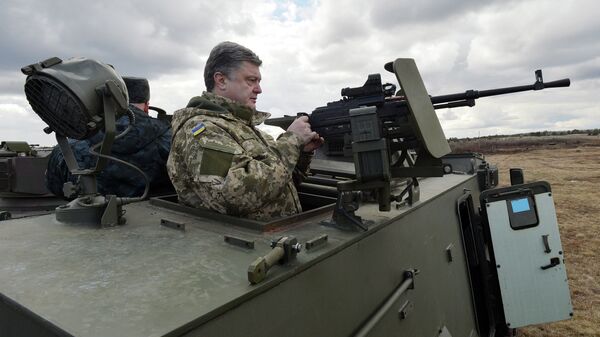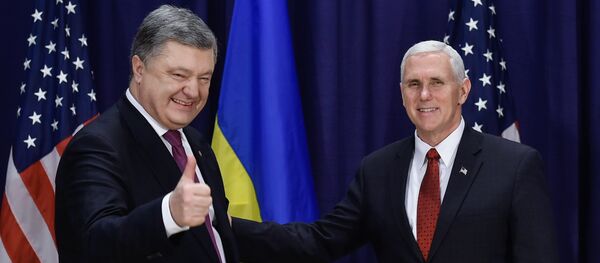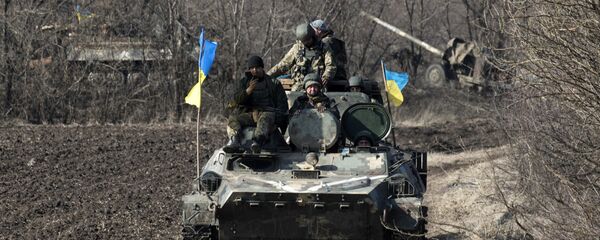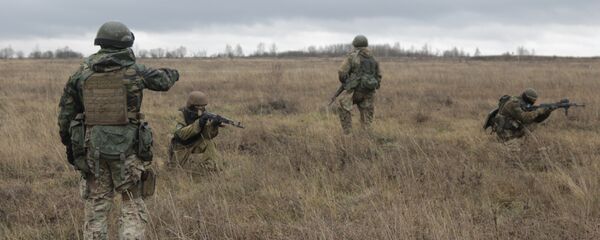Earlier this week, US media offered a glimpse of the Trump Budget Office's ambitious plans to cut USAID funding, showing that Ukraine is facing a hefty 68.8% reduction in economic assistance, from the $570 million this year to $177 million in 2018.
Ukrainian politics observers say that if the cuts do go through, ordinary citizens will hardly be affected, since it is the country's political, media and 'civil society' elites that are engaged in dividing up most of the US's economic aid spending amongst themselves.
"This is an important issue for those who have gotten used to living off of grants, and depending on US support for certain sectors of the economy – first and foremost the defense sector," political analyst Kost Bondarenko said, speaking to local media. "But it wasn't worth expecting anything else; Trump has always said that he would cut aid to other countries and direct these funds toward the needs of Americans," he added.
But as Svobodnaya Pressa contributor Anna Sedova explained, Ukraine's authorities are probably concerned not only by the possible cut in aid spending, but with consequent cuts in political and military support as well.
This week, Donetsk People's Republic authorities reported on the arrival of US military instructors in the conflict zone in Donbass. Meanwhile, on Thursday, Ukraine announced plans to hold more military drilling near the border with Crimea, as part of an overall buildup on the Russian peninsula's border.
Respected Russian political scientist Sergei Markov suggested that the US presence in the Donbass is a test of a different kind – an effort by the Pentagon to determine just how far the White House will continue supporting Ukraine in principle.
"The new leadership in the Pentagon is trying to assess what was done by their predecessors, and to figure out what to do in the future. Right now, apparently, a new US policy is taking shape in relation to Ukraine, quietly, behind the scenes," Markov wrote, commenting on the suspected Donbass deployment on his Facebook page.
"Provocations are needed to ensure that the US doesn't reduce its report. They want to tell the Americans 'if there is no US support, there will be a pro-Russian uprising, and then Ukraine will move into Russia's orbit," Markov noted.
Speaking to Svobodnaya Pressa, the expert emphasized that for now, "no one knows for certain just how large such a provocation can be, and what their outcome would be. But one thing is for certain: the current US administration is very unhappy with the result of its Ukraine policy, and they are preparing to change it. This is why an audit is taking place of all [US] programs – the results of work are being checked across the board. This is taking place fairly quietly, but Ukraine's authorities are certainly aware of this process, and are trying to influence the results" accordingly.
"Everyone saw that the provocation in Idlib worked very well. And it's worth recalling that this is not the first time that something like this has happened [in Ukraine]. For example, the Malaysian Boeing was shot down [in 2014] according to the same strategy. It cannot be excluded that the same methods may be used now," Markov warned.
Ultimately, the analyst stressed that it was difficult to predict exactly how all this will play out. "After all, organizing a provocation on the level of the downed Boeing is not easy," he noted. Nevertheless, amid a deteriorating political and socio-economic situation, and facing the prospect of being abandoned by their Western sponsors, Moscow should be prepared for any provocations that the Maidan-installed authorities in Kiev throw at them.




